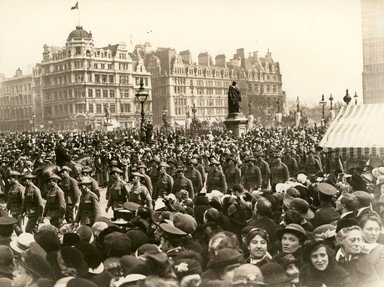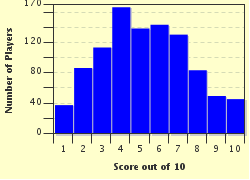Quiz Answer Key and Fun Facts
1. What was meant by the term 'Bluestockings'?
2. To what did the term 'Caliph' refer?
3. To what does the term 'Janissaries' refer?
4. What did the term 'Night of the Long Knives' originally refer to before being used in fairly regular common day parlance?
5. What did the term 'Peter's Pence' mean in England?
6. To what does the term 'Hussites' refer?
7. What did the term 'Ironclad' refer to?
8. In England, to what did the term 'alderman' refer to?
9. To what does the term the 'New Model Army' refer?
10. To what does the 13th century medieval term 'Pastoureaux' refer?
Note: please note the century for this question.
Source: Author
trojan11
This quiz was reviewed by FunTrivia editor
bloomsby before going online.
Any errors found in FunTrivia content are routinely corrected through our feedback system.

